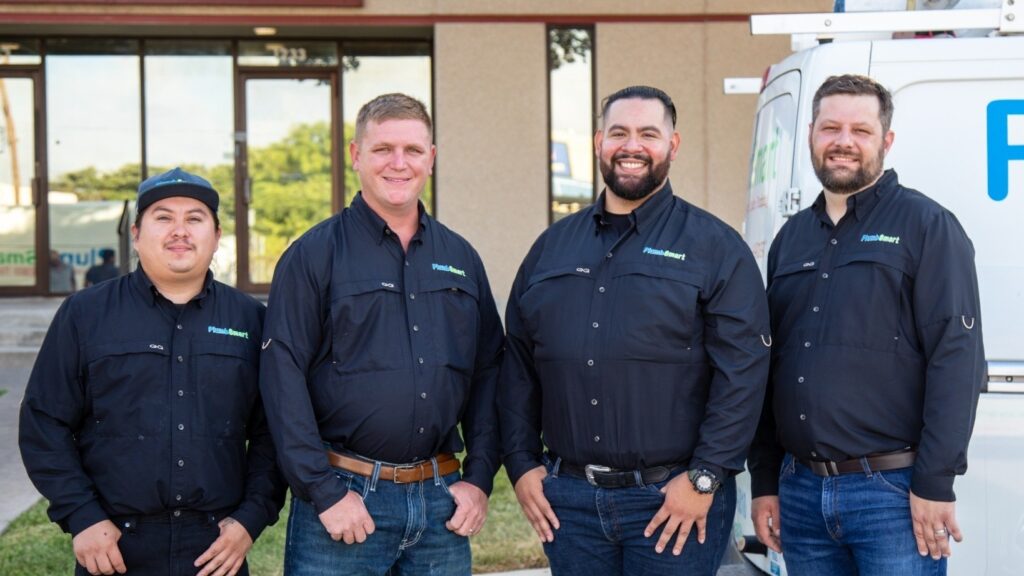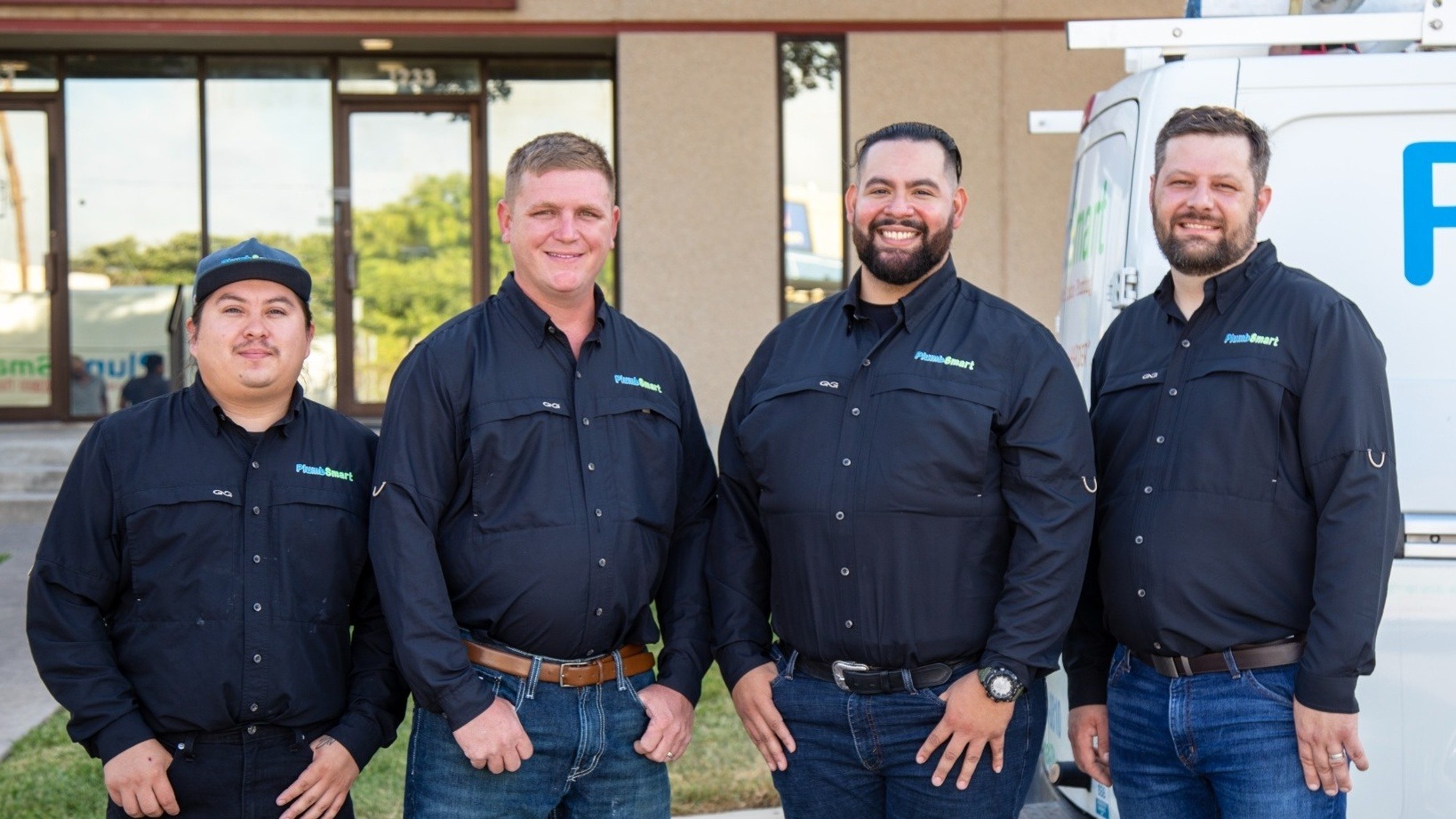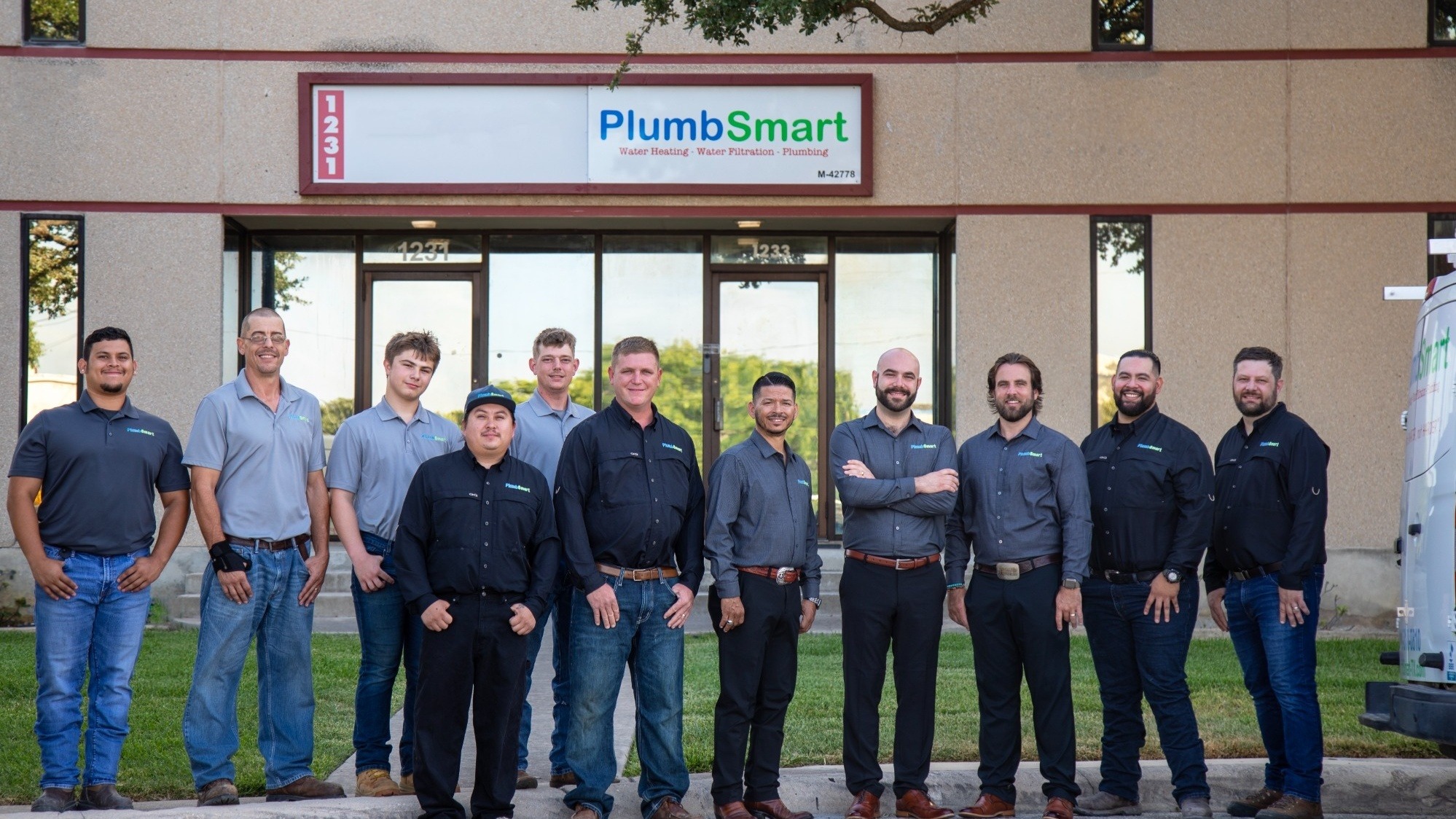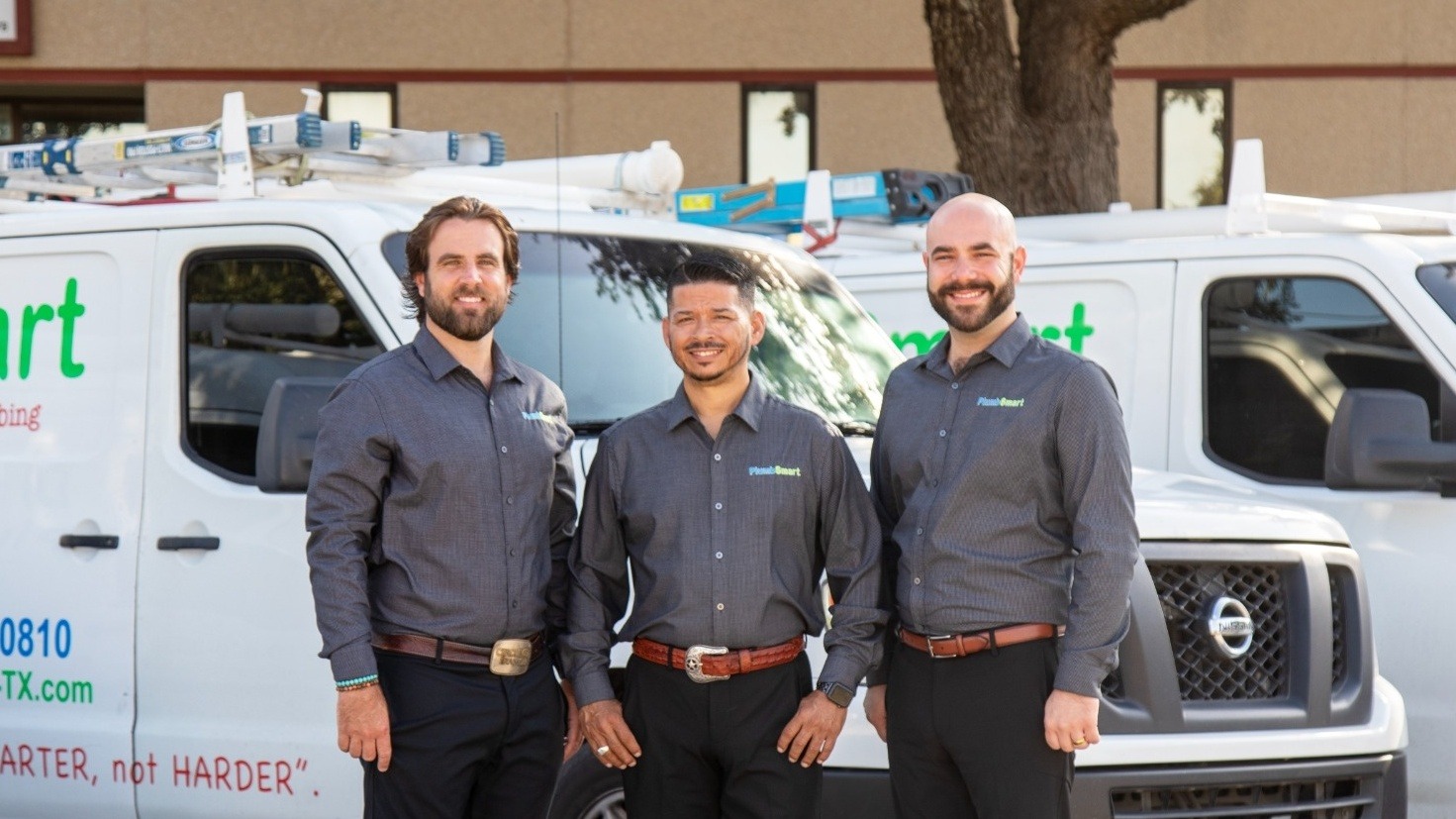The kitchen telltales that your water is working against you
If your “clean” dishes come out spotty, your stainless sink keeps getting that chalky ring, and your faucet aerator clogs up faster than it should, you’re not imagining it. That’s hard water leaving minerals behind every time water dries. In San Antonio, TX, those signs show up early because the water is naturally mineral-rich.
A water softener won’t make your kitchen prettier overnight, but it can make everyday chores feel less stubborn: soap rinses cleaner, glassware stays clearer, and fixtures stop crusting up as quickly. The real question isn’t “Are softeners nice?” It’s “Will one fix problems that are costing you money, time, or plumbing headaches in your specific home?”
What a water softener actually changes
Hard water is water with dissolved minerals, mainly calcium and magnesium. Those minerals are not “dirty,” but they do cause scale, the white, rock-like buildup that sticks to fixtures, inside water heaters, and in appliance lines.
A typical whole-home water softener uses ion exchange (a resin bed that swaps hardness minerals for sodium or potassium). That swap prevents scale from forming as easily and makes soap work better. If you’ve ever felt like you need twice the dish soap to get a pan clean, that’s hardness fighting you.
It helps to separate two ideas homeowners often mix up:
- Softening changes the water’s hardness so minerals stop building scale as fast.
- Filtering targets particles, tastes/odors, or certain contaminants. Softening is not the same thing as “purifying.”
In many kitchens, soft water feels like a quality-of-life upgrade. In the plumbing behind the wall, it’s more like prevention.
Why people regret the decision
A softener can be absolutely worth it, but the regret stories usually come from a few predictable problems.
One is buying the wrong size. If the softener is undersized, it regenerates (recharges) too often, uses more salt and water than necessary, and still lets hardness sneak through. If it’s oversized, it costs more upfront and may sit too long between cycles, which can make the resin bed less effective over time.
Another big one is ignoring the home’s “under-the-sink reality.” Older shutoff valves that don’t fully close, small corroded supply lines, and partially clogged aerators can all make water feel weak after a new system goes in, even when the softener is doing its job. Homeowners blame the softener, but the real issue was already there.
Finally, some people dislike the feel of very soft water. It can feel “slippery” in hand-washing and showering because soap rinses differently. That’s not a defect. It’s a settings issue, and it’s usually fixable by adjusting the hardness level instead of maxing it out.
A quick checklist before you buy anything
Before you commit, do these simple checks so you’re solving the right problem and not creating new ones:
- Confirm your hardness level using your utility’s info or a reliable hardness test kit
- Look at your faucet aerators and showerheads for crusty mineral buildup and clean them first
- Check your water heater age and whether it’s showing scale signs (popping sounds, slow recovery)
- Decide if you want softened water at every tap or only for hot water and appliances
- Plan where the system will go and where it will drain (it must discharge safely)
- Pick a softener style that regenerates based on usage, not just a fixed timer
- Consider who will maintain it: adding salt, checking settings, and occasional cleaning
This is the difference between “best money we spent” and “why is my water weird now?”
Soft water, pressure, and the weak faucet myth
A lot of homeowners think a softener will “lower water pressure.” Usually what changes is flow, not pressure. Pressure is the force in the pipe. Flow is how many gallons per minute you actually get at the faucet once water is moving through valves, aerators, and restrictions.
If a faucet already has buildup in the aerator (the little screen at the tip), it might be barely hanging on. Once you start solving hardness, you also start noticing old restrictions and worn parts. That can feel like the softener “caused” a weak faucet, when it really exposed a faucet that was overdue for service.
It’s also smart to look at your fixture efficiency. Many newer faucets are designed to limit flow while still feeling usable. EPA guidance notes efficient kitchen faucet models commonly run in the 1.5 to 1.8 gallons-per-minute range, depending on the model and local requirements, which is normal for modern homes and not a pressure problem by itself (EPA WaterSense kitchen faucet guidance).
Hard water scale makes this worse over time by narrowing openings inside cartridges and valves. In other words: hard water can quietly “turn down” your flow over the years, and a softener helps stop that from continuing.
When softening uncovers other plumbing issues
Sometimes a softener installation is the moment you discover the stuff you’ve been living with for years.
If shutoff valves are stuck or won’t fully close, don’t muscle them until they snap. A broken shutoff can turn a simple upgrade into a scramble to shut off the whole house.
If you get gurgling drains or a sewer smell after plumbing work, don’t dump chemicals down the sink hoping it goes away. Drain chemicals can damage older pipes and rarely fix the real cause. Gurgling usually means air is trapped because something isn’t draining freely, and smells can point to a dry trap, partial blockage, or a venting issue.
Water hammer (that banging sound when a valve closes) is another one. It can show up when flow paths change and old pipes flex. Don’t ignore it. Repeated hammering is rough on supply lines and fixture connections.
In San Antonio, TX, hard water scale can hide slow-developing restrictions in valves and faucet cartridges. When you start improving water quality, it’s worth giving the rest of the system a quick once-over so you don’t mistake an old plumbing issue for a “bad softener.”
How to confirm it’s working right in the first week
The first week is where you catch the small issues before they become annoying.
Start with a basic hardness test at a softened-water tap and compare it to an outdoor hose bib (hose bibs are often unsoftened). You should see a clear difference.
Then do a slow, boring leak check. Open the cabinet, dry everything with a paper towel, and come back later. Even a tiny drip can swell particleboard bottoms and make the cabinet smell musty.
Pay attention to your hot water too. A softener won’t instantly clean scale already baked inside a water heater, but it can slow down future buildup. If you hear popping or sizzling, that’s often sediment or scale on heating surfaces, and it may be time for maintenance.
Finally, expect soap to behave differently. If you keep using the same amount, you may feel like you can’t rinse. Use less soap, and you’ll usually like the results a lot more.
When a pro install pays for itself
If your plumbing is straightforward and your shutoffs work perfectly, a softener can feel like a clean, easy upgrade. But many homes aren’t that simple, especially if valves are older, access is tight, or you’re not sure where the main shutoff actually is.
Calling a plumber can save money when you want the system set up cleanly the first time: correct bypass orientation, stable mounting, proper drain routing, and no surprise leaks. It also helps if you want to soften the right parts of the home without accidentally feeding softened water to places you didn’t intend.
If you’re leaning toward a whole-home system, start here: water softener installation. If you already have a unit that’s running but not softening well, water softener repair can often fix common problems like bad settings, clogged injectors, or worn parts without replacing everything. And if your bigger goal is better taste at the kitchen sink, pairing softening with water filtration can be a practical setup for many households.
One more “worth it” detail: choose equipment that’s built for drinking-water contact. Reputable residential softeners are commonly certified to standards like NSF/ANSI 44, which sets minimum requirements for performance and materials (NSF/ANSI 44 overview). That helps you shop past marketing and toward proven testing.
So, is it worth it for your home?
In most of San Antonio, TX, the water is considered very hard. SAWS notes typical hardness is about 15 to 20 grains per gallon, which is plenty high enough to cause scale and soap frustration over time (SAWS water quality FAQ). That’s why so many homeowners here end up considering softeners eventually.
A softener is usually worth it if you want fewer spots on dishes, less scale on fixtures, longer appliance life, and less “fighting your water” every day. It may not be worth it if you’re rarely home, your home is already set up with point-of-use solutions, or you don’t mind doing regular descaling and replacing aerators.
If you’re deciding, keep it simple and focus on three actions: make sure the system fits your household water use, choose reliable equipment with real certification, and plan for the conditions you already have in your plumbing and drains. Do that, and a water softener stops being a gadget and starts being a long-term upgrade.




